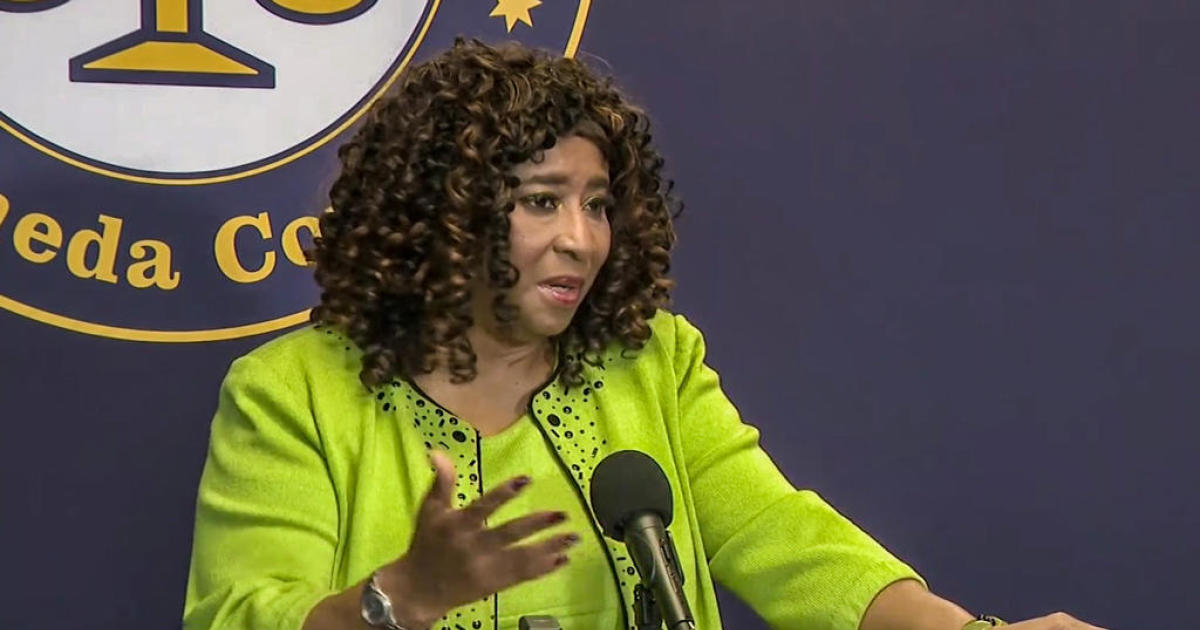Governor Brown, Lt. Governor Newsom Using Personal Email For Government Business
SACRAMENTO (CBS/AP) — Gov. Jerry Brown, Lt. Gov. Gavin Newsom and other top elected officials in California acknowledge using personal email accounts to conduct government business, and it's not clear if their private exchanges are retained as public records or subject to disclosure.
An Associated Press survey of email use by the state's four legislative leaders and eight top elected officers found a loose patchwork of practices under which private electronic conversations while on the job are alternately commonplace, infrequent or discouraged.
Brown's office says the governor occasionally uses private email to contact staffers, while Superintendent of Public Instruction Tom Torlakson conducts most of his state business on a personal email account.
The use of private emails by public officials has come under increased scrutiny as former Secretary of State Hillary Rodham Clinton faces sharp criticism for using a private email account while at the State Department and acknowledging she deleted thousands of messages.
California has no blanket policy restricting the use of personal email for government-related activities. Advocates warn that the gap in the law gives officials the opportunity to hold private electronic discussions on state matters — with lobbyists or political donors, for example — that could be erased or edited with the push of a computer key or tap of a cellphone.
"There is always a cloud hanging over a public official who is not using an official email to conduct the public's business," said Kathay Feng, executive director of California Common Cause, which promotes government transparency.
The Democratic governor, who carries an iPhone, uses a private email account for what his office described as "informal communication" with his staff, such as distributing news stories or brief messages such as "please call."
Controller Betty Yee, a Democrat, said she does not use a personal account for official matters because "the public's business should be conducted through state resources, and that includes using government email accounts for government work." Attorney General Kamala Harris, a Democrat running for U.S. Senate, told AP earlier this month she uses private email to communicate with top staffers, but only rarely.
By comparison, Torlakson said he conducts most of his state business on private email because it's more convenient.
"As an elected official, I am legally obligated to use private email for all campaign-related communications and find it both practical and convenient to use the same email for most state issues," he wrote.
Treasurer John Chiang has used personal emails for state matters, but after being queried by the AP his office said he will impose a new policy to ensure that communications involving state business are "conducted using official mediums, where there is an official public record."
"The state Treasurer's Office has never had a policy addressing this particular matter. At a time when technology can quickly outpace law, policy and practice, government agencies have to work harder to catch up," a statement from his office said.
California Secretary of State Alex Padilla, whose office previously did not respond to the AP's request, said in a statement Monday that "it is not our practice to use private email in lieu of public for state business."
Most state transparency laws, including open records laws that apply to California state government and the Legislature, were written before electronic communications were common and they vary significantly.
In California, each agency is charged with developing its own policy for retaining records and can set rules for email policy.
"We think the Legislature and the governor should really look at the rules and regulations on the books and see what ways they can change them to reflect modern technology," said Philip Ung, director of public affairs for California Forward, a good-government group that advocates for greater transparency and access to public data.
Ung said his group would like to partner with other transparency advocates to pressure public officials to update state policies on the use of both private and public email.
Last year, the California Supreme Court said it will decide if private emails and other electronic communications of government officials are public records in a case involving the San Jose mayor and city council.
Public disclosure can present tricky issues when it comes to government officials using personal email accounts, said Jessica Levinson, an attorney and member of the Los Angeles Ethics Commission. In general, the public should be able to see email exchanges involving government business, but it's not always simple, she said.
"Their salaries are paid by taxpayers. It is appropriate to ask them to give up some amount of privacy," said Levinson, who teaches at Loyola Law School. But "we don't get to listen into public officials' phone calls every time they are conducting official business."
When asked if he retains private emails, Torlakson said they would go into the state email system if one is sent to an agency employee. It wasn't clear what would become of an email sent outside government. He said he would make his private emails available "when an appropriate request has been made."
The four Assembly and Senate leaders did not respond directly about their use of private email to conduct legislative business, instead pointing to strict rules governing the use of state-issued email accounts.
"The Assembly does not have a policy on non-state emails used for state purposes, as the focus has always been to make sure state resources are not being used for private purposes," said John Casey, deputy chief of staff for Assembly Speaker Toni Atkins, D-San Diego.
There also is apparently no policy in the Legislature to retain records pertaining to legislative business sent from private accounts.
Three of the leaders declined to give their view on whether such exchanges should be public records, while Assembly Minority Leader Kristin Olsen, R-Riverbank, said the Assembly should consider such questions given the changes in technology.
© Copyright 2015 The Associated Press. All Rights Reserved. This material may not be published, broadcast, rewritten or redistributed.



